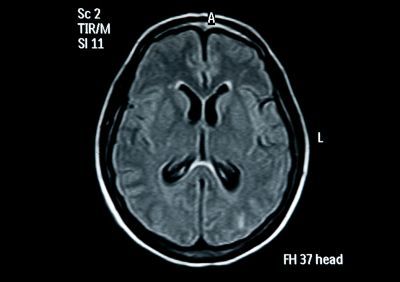New brain scan better at detecting early Alzheimers

A new kind of brain scan seems to be better at detecting early signs of change related to the onset of Alzheimer's disease, new research published Wednesday in the online issue of Neurology found.
The scan, called diffusion tensor imaging (DTI), could prove important to earlier detection and in turn better treatment.
"As better medicines for Alzheimer's disease become available, it will be important to identify people at high risk for the disease as early and accurately as possible so treatment can be most effective," said Norbert Schuff of the University of California San Francisco, who wrote an editorial about the study.
The DTI-MRI, more sensitive than traditional MRI for detecting changes in brain chemistry, allows for mapping fiber tracts that connect brain regions.
Researchers looked at 67 healthy people in Rome aged 20-80.
"Our findings show this type of brain scan appears to be a better way to measure how healthy the brain is in people who are experiencing memory loss. This might help doctors when trying to differentiate between normal aging and diseases like Alzheimer's," said author Giovanni Carlesimo, PhD, with Tor Vergata University in Rome.
"DTI, along with MRI, could serve as an important tool in understanding how and why a person experiences memory decline," he added
An estimated 37 million people worldwide, including 5.3 million in the United States, live with dementia, with Alzheimer's disease causing the majority of cases, according to the World Health Organization (WHO).
With the aging of populations, this figure is projected to increase rapidly over the next 20 years.
js/mdl/fgf
Subscribe to Independent Premium to bookmark this article
Want to bookmark your favourite articles and stories to read or reference later? Start your Independent Premium subscription today.

Join our commenting forum
Join thought-provoking conversations, follow other Independent readers and see their replies